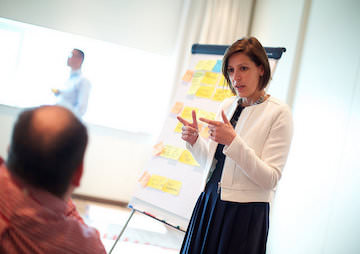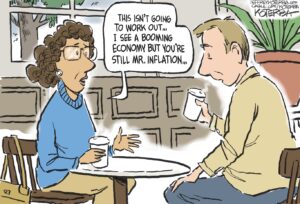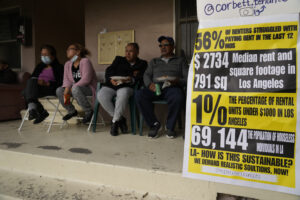Women Are Judged Much More Harshly Than Men for Similar Assertiveness at Work
A new study rates women who come across as angry or critical as 35 percent less competent and worth $15,000 less in pay than those who are less aggressive. Comparable behavior by men costs them only about half as much in perceived fair compensation. Sebastiaan ter Burg
/ CC BY 2.0
Sebastiaan ter Burg
/ CC BY 2.0
A new study illuminates some effects of gender bias in the workplace by showing that certain displays of assertiveness are perceived as especially unacceptable for women. The research shows that when women are equally as aggressive as men in workplace communication, their perceived deserved compensation drops twice as much as men’s — by up to $15,088 a year — and their perceived competency plunges by 35 percent.
The research agency, VitalSmarts, explains further:
Joseph Grenny and David Maxfield, leading researchers of the study of more than 11,000 participants, present their findings in a new white paper.
“Speaking up in forceful, assertive ways is especially risky for women,” said Grenny, coauthor of the New York Times bestseller Crucial Conversations. “An emotion-inequality effect punishes women more than men. Women are burdened with the assumption that they will conform to cultural stereotypes that typecast women as caring and nurturing. Speaking forcefully violates these cultural norms, and women are judged more harshly than men for the same degree of assertiveness.”
The research also shows that using a brief, framing statement—that demonstrates deliberation, forethought, and control—reduces the social-backlash and emotion-inequality effects by 27 percent.
“Our research proves it’s all in how you frame it,” Maxfield said.
As explained in the white paper, by framing the assertive statement with what the authors term a “behavior phrase,” a “value phrase,” or an “inoculation phrase,” the negative perception was significantly reduced. These phrases include:
“I’m going to express my opinion very directly; I’ll be as specific as possible.” (behavior phrase)
“I see this as a matter of honesty and integrity, so it’s important for me to be clear about where I stand.” (value phrase)
“I know it’s a risk for a woman to speak this assertively, but I’m going to express my opinion very directly.” (inoculation phrase)
The white paper explains how and why such framing phrases work so effectively.
The paper also details how the research was conducted. In the first study, 4,517 participants observed videotaped performances and then rated the male or female “manager” using a 20-item survey. In the second study, 7,921 participants played the observer role and followed a similar pattern, this time rating the actors after they used the framing statements (phrases) listed above.
“In short, speaking forcefully creates a social backlash,” Maxfield said. “That backlash is amplified for women and can adversely affect an individual’s career and prove costly to an organization’s effectiveness. We believe the implications of this research will empower individuals and leaders to be more aware of gender bias as well as engage in and encourage candid discussion while minimizing negative impacts.”
Read more in their news release, here.
–Posted by Roisin Davis
Your support matters…Independent journalism is under threat and overshadowed by heavily funded mainstream media.
You can help level the playing field. Become a member.
Your tax-deductible contribution keeps us digging beneath the headlines to give you thought-provoking, investigative reporting and analysis that unearths what's really happening- without compromise.
Give today to support our courageous, independent journalists.






You need to be a supporter to comment.
There are currently no responses to this article.
Be the first to respond.